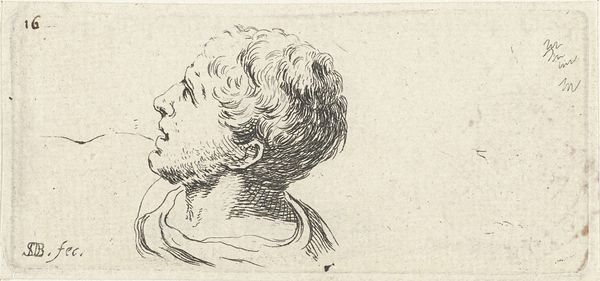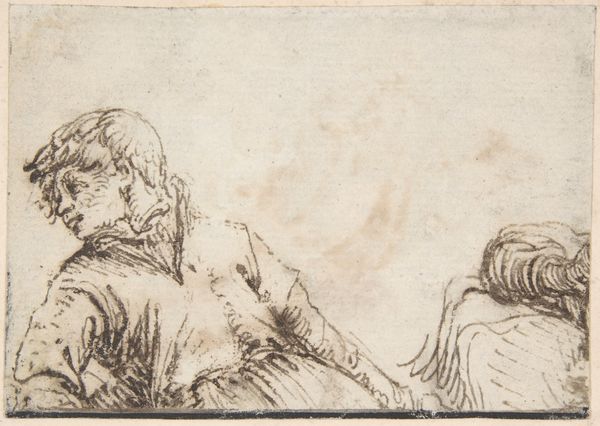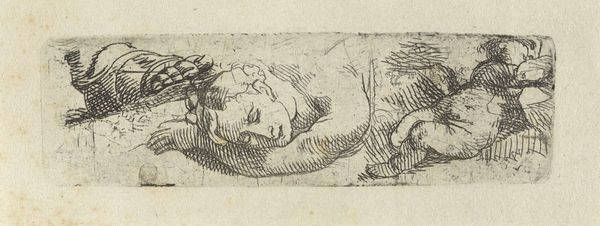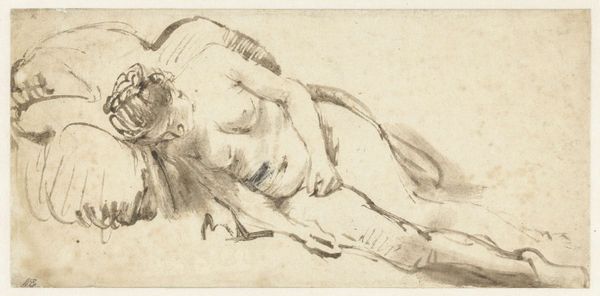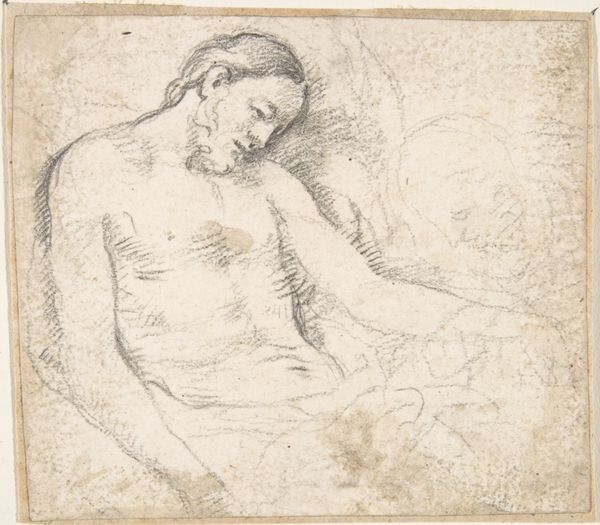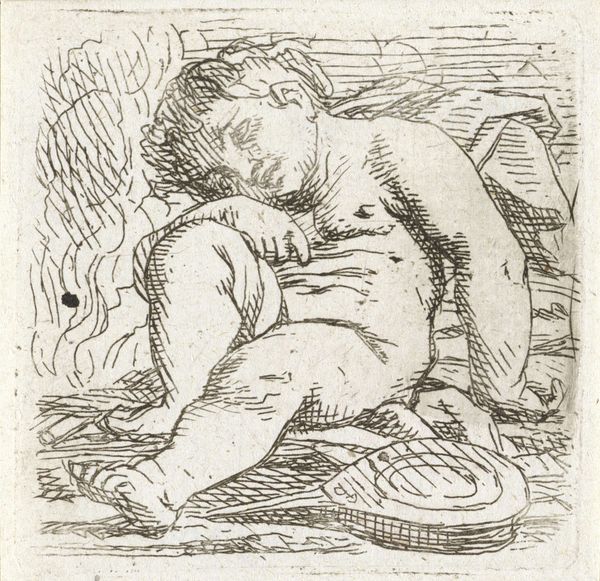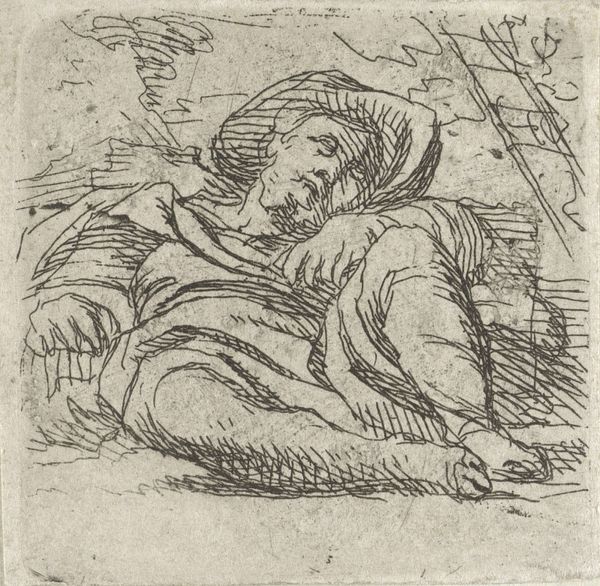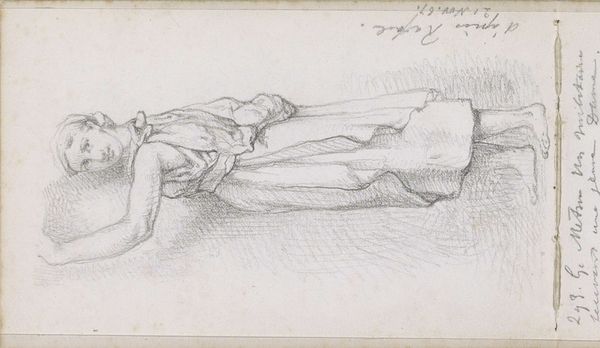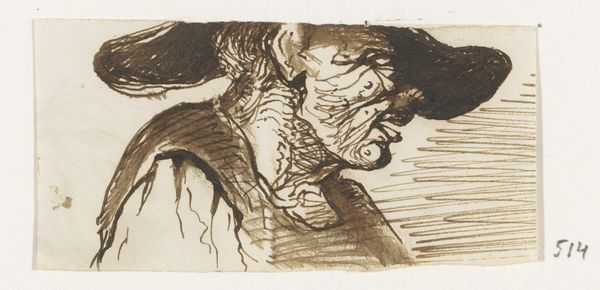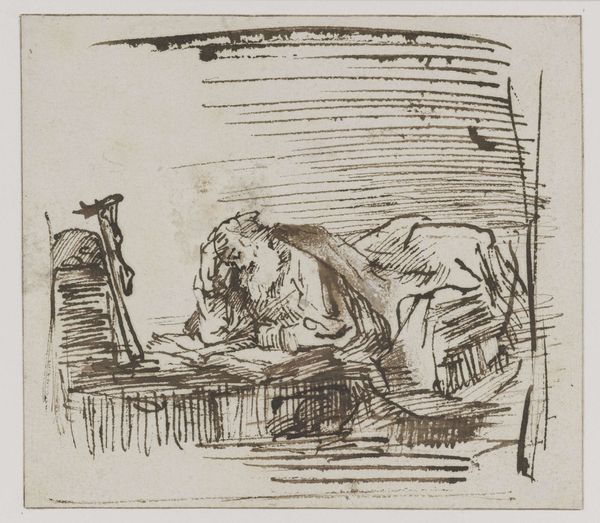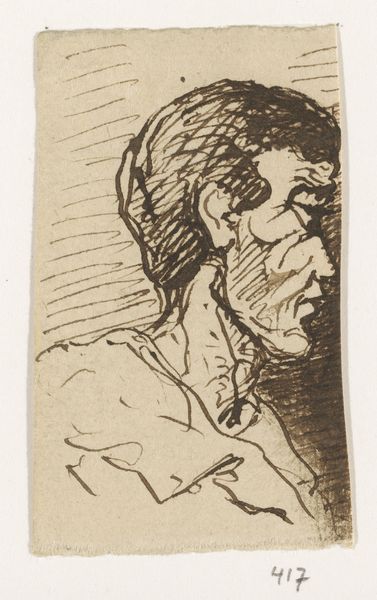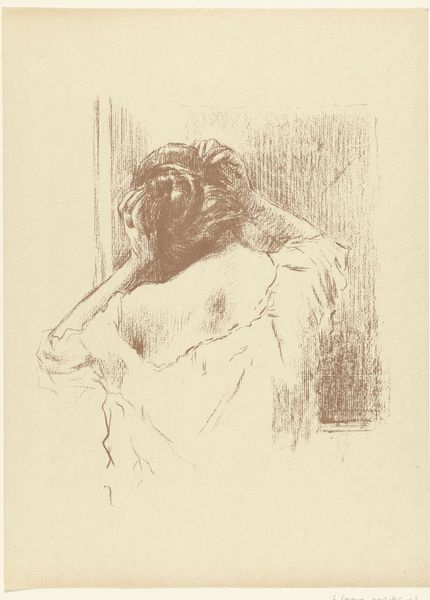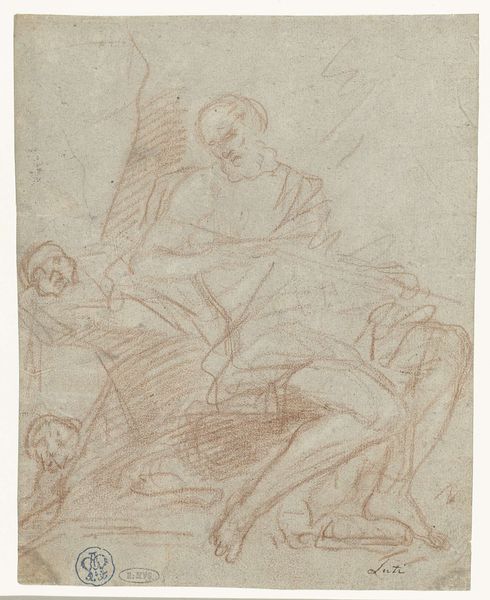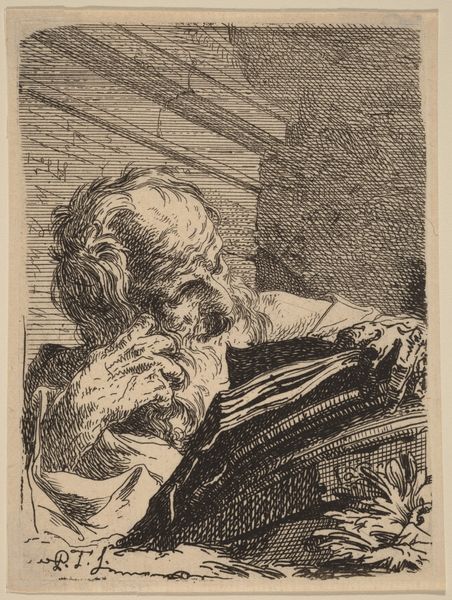
drawing, print, ink, engraving
#
portrait
#
drawing
#
ink drawing
#
baroque
# print
#
pen sketch
#
figuration
#
ink
#
ink drawing experimentation
#
line
#
history-painting
#
engraving
Dimensions: height 38 mm, width 73 mm
Copyright: Rijks Museum: Open Domain
This is Cornelis Schut’s Head of Christ, a small yet powerful etching. The etching process, a printmaking technique, involves using acid to cut into a metal plate, which is then inked and pressed onto paper. Look closely, and you can see how the incised lines define the form and the subtle textures create depth and shadow. The starkness of the black lines against the white paper gives the image a raw, immediate quality, reflecting the intensity of the subject. Schut was a master of this process, using it to create a range of effects from delicate shading to bold, graphic strokes. The marks are a testament to the hand of the artist, and the way that printmaking allows for the dissemination of images. Consider how the material and the making process contribute to the emotional impact of the artwork, reminding us that even in fine art, the craft and the context matter.
Comments
No comments
Be the first to comment and join the conversation on the ultimate creative platform.
